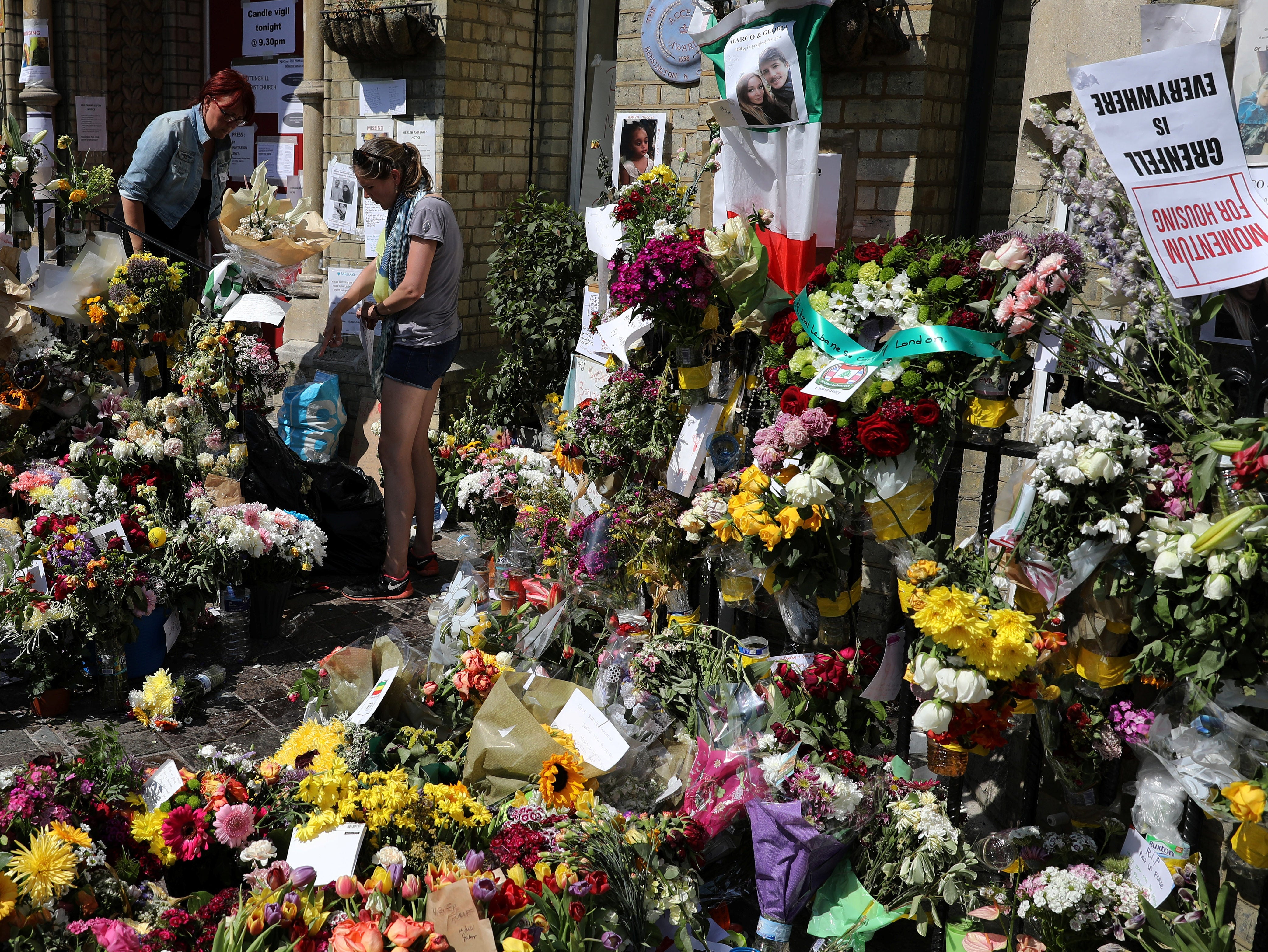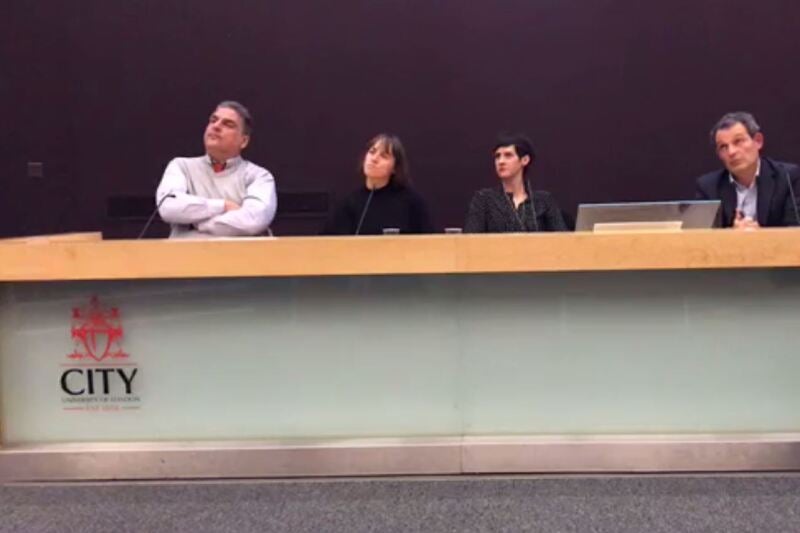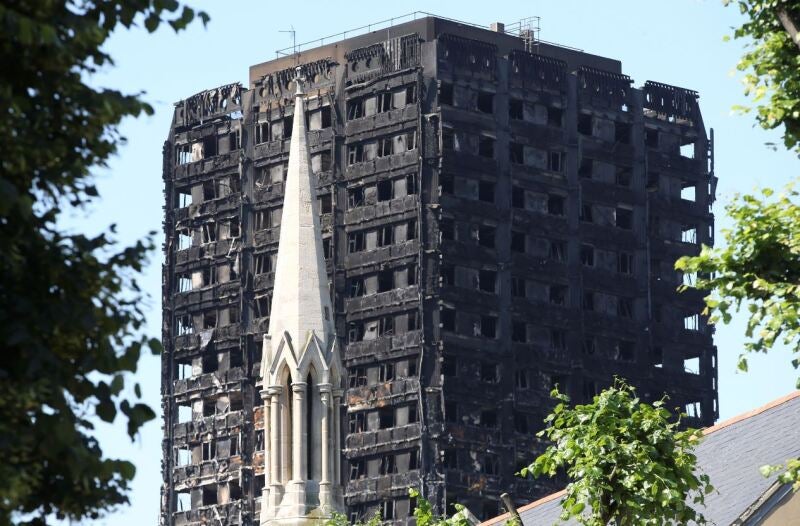
A national newspaper website journalist decided not to attend Press Gazette’s Grenfell Tower debate last night after being told by their editor “nobody’s reading our Grenfell stuff any more”.
The story was related by a friend of the journalist concerned, who said the editor had told him: “After two weeks the hits they were getting fell so much that they could no longer afford to send reporters to cover it any more.”
This contrasted with the frustration expressed by some residents living near Grenfell Tower about the hit and run nature of national media coverage since the disastrous fire which killed 71 people in June.
The public event, hosted by the City University journalism department in association with Press Gazette, asked whether journalists had let down the residents of Grenfell Tower in north Kensington.
The discussion’s starting point was the fact that no news media picked up on warnings posted on the Grenfell Action Group blog in November 2016 about fire safety.
The piece was one of a series highlighting safety concerns and said: “the Grenfell Action Group firmly believe that only a catastrophic event will expose the ineptitude and incompetence of our landlord, the KCTMO, and bring an end to the dangerous living conditions”.
Inside Housing is one title which did highlight tower block fire safety issues before the Grenfell tragedy, including a piece which revealed that London Fire Brigade had written to landlords in the capital warning that cladding on high-rise blocks might not be safe.
Deputy news editor Sophie Barnes said that watching news coverage of the Grenfell disaster on 14 June: “A large part of me was horribly not surprised. There have been quite a few tower block fires in London where people have tragically died, with similar issues.”
She said Inside Housing published a story months before the Grenfell Tower blaze warning about the safety of tower block cladding.
She said: “We sent that story around to all the nationals, we sent it around to as many people as we could to get some interest and there wasn’t the interest because no-one had died.”

Dominic Ponsford, Sophie Barnes, Gemma Newby and Grant Feller
Media consultant Grant Feller began his career on the Kensington and Chelsea News in 1990 when it had four reporters covering the borough.
At the time of the Grenfell fire the title had one reporter providing all the news content for it and two other newspaper titles. The newspaper closed in July and today there are no news journalists dedicated to covering Kensington and Chelsea.
Feller said he felt Grenfell highlighted the problem of journalists being too reactive.
He said: “Journalists focus on when things happen. They react to stories.
“We went out without any stories whatsoever looking for stories.
“I can recall the best day of the week was the day after press day. We would be out walking through the borough just trying to find a story.
“Without a doubt we would have found that blog…
“I’m convinced that if the paper I worked on existed today there is no way that Grenfell could have happened.
“We would have been part of that community at the time. We felt part of the community. You were the glue that kept things going.”
The weekly Kensington and Chelsea Chronicle highlighted Grenfell residents’ concerns about asbestos in 2014, but it was closed by publisher Trinity Mirror and subsumed into the Get West London website. Trinity Mirror’s corporate PR team rejected a request for a journalist from Get West London to be involved in last night’s debate.
The decline of local media in Kensington was chronicled by Gemma Newby in a BBC News website story this week and with her work as a producer on the radio programme Local News: What Are We Missing?
She told the event that Grenfell Action Group blogger Edward Daffern thought “the fact that no journalists were interested [in his earlier blog posts] was a sign that society was not interested in people like him. Because we are focused on other things like celebrity and wealth. Like crime.”
Last night’s event was filmed by man called Faisal for the Grenfell Speaks Facebook page.
He said residents continue to be concerned about media coverage of their area: “The press dip in, try and get these really clickbaity stories and then dip back out.
“The constant calls and requests from the mainstream media. Can you put us in touch with survivors so we can speak to survivors or bereaved family members because this is where the story is? The community doesn’t care about that. We are a fractured community that are trying to bring ourselves back together again.
“For me it’s not just about these stories, it’s about the really nice stories that the community are doing to try to help each other come out of this.
“We told the story of a lady called luna. She’s an 80-year-old woman who would take two buses to come and bring fresh flowers every single day just on a little table. No one was interested. Six weeks later ITV wanted to talk to her.”
“There are loads of these little stories, local stories that interest the local community.
“That’s why I do what I do because it nurtures the local community.”
Another local resident called Amber shared her concerns about press coverage.
She said: “Those who survived the Grenfell fire are still struggling for just outcomes. Many of them are still in temporary accommodation approaching the six-month mark.
“What can journalists do to ensure that those people get the outcomes they deserve from the future?
“I am an African woman and I will tell you that I am interested in news and everybody that I know is interested in news. But what we are interested in is news that affects us, our concerns, our lives.
“To know why people do not buy or read newspapers then have a look at what these newspapers cover about different communities and how they cover them.
“There has been a lot of good coverage but there has also been a lot of questionable coverage…
“What I would like to hear is how journalists are going to serve the people in temporary accommodation, whose kids are traumatised.”
Another man called Faisal who has been working with a group providing trauma support for Grenfell survivors told the debate: “I’ve seen a lot of great coverage, and I’ve seen a lot of sub standard coverage and I’ve seen indiscretion from journalists in the mainstream media. For example revealing the locations of where survivors are staying which puts them at risk.
“Two weeks ago a reporter asked the mother of a child survivor to write a letter to her dead friend from the tower so they could film her reading it.
“My question to you is where is the line when you are chasing the story? How invested are you in this community because I’m guessing you aren’t the guys who are getting the call at 2.30am in the morning when a survivor wants to cut their wrists?”

Grenfell Tower: Credit Reuters
Email pged@pressgazette.co.uk to point out mistakes, provide story tips or send in a letter for publication on our "Letters Page" blog
